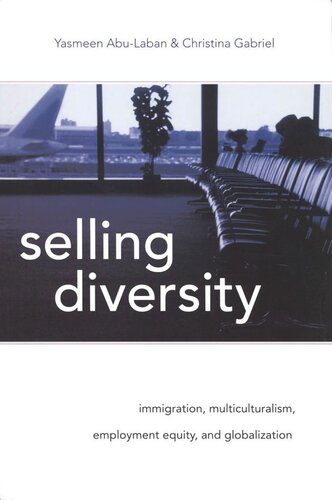

Most ebook files are in PDF format, so you can easily read them using various software such as Foxit Reader or directly on the Google Chrome browser.
Some ebook files are released by publishers in other formats such as .awz, .mobi, .epub, .fb2, etc. You may need to install specific software to read these formats on mobile/PC, such as Calibre.
Please read the tutorial at this link: https://ebookbell.com/faq
We offer FREE conversion to the popular formats you request; however, this may take some time. Therefore, right after payment, please email us, and we will try to provide the service as quickly as possible.
For some exceptional file formats or broken links (if any), please refrain from opening any disputes. Instead, email us first, and we will try to assist within a maximum of 6 hours.
EbookBell Team

0.0
0 reviewsSince the 1990s, Canadian policy prescriptions for immigration, multiculturalism, and employment equity have equated globalization with global markets. This interpretation has transformed men and women of various ethnic backgrounds into trade-enhancing commodities who must justify their skills and talents in the language of business. This particular neo-liberal reading of globalization and public policy has resulted in a trend the authors call selling diversity.
Using gender, race/ethnicity, and class lenses to frame their analysis, the authors review Canadian immigration, multiculturalism, and employment equity policies, including their different historical origins, to illustrate how a preference for selling diversity has emerged in the last decade. In the process they suggest that a commitment to enhance justice in a diverse society and world has been muted. Yet, neo-liberalism is not the only or inevitable option in this era of globalization, and Canadians are engaging in transnational struggles for rights and equality and thereby increasing the interconnectedness between peoples across the globe. Consequently, the emphasis on selling diversity might be challenged.